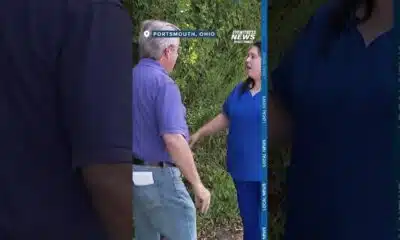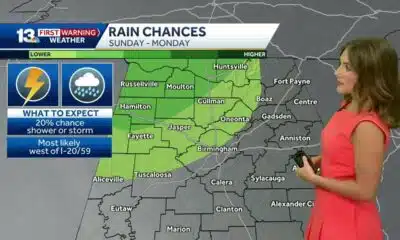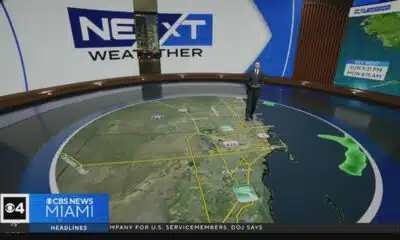News from the South - Texas News Feed
Why I Still Believe Texas Can Be Better
When I was in college, I had to drive 35 miles from San Marcos to Austin to visit Planned Parenthood. The first time I drove there in 2016, I didn’t know the way and the traffic on Interstate 35 overwhelmed me. For someone like me, young, uninsured, and terrified of driving in a big city, the short trip felt like crossing a continent.
So obtaining basic reproductive health care seemed virtually impossible. But I had no choice. I had no insurance. I needed care and answers.
It wasn’t the first time I’d been to a Planned Parenthood clinic. When I was 10, I remember sitting in the waiting room while my mom received care at the Planned Parenthood in the Rio Grande Valley. She tried to hide her nervousness, but I sensed it in the hum of the TV, the quiet whispers, and the weight of the moment. I didn’t fully understand what was happening, but I understood enough that this place mattered. It helped women like my mom. And one day, it would help me too.
Unfortunately, that is no longer as true. Last month, a panel of the U.S. House of Representatives advanced a measure that would block Medicaid funding from Planned Parenthood nationwide, though even the Congressional Budget Office has warned this cut wouldn’t save money. Instead, this move would cost taxpayers $300 million.
It will also strip essential care from millions who already have too few options. The places in Texas where low-income women could obtain basic care without fear or shame are disappearing.
For me, this cut feels personal. I learned early as a Texan that our state doesn’t always fight for its people. Especially if you’re Latina. Especially if you’re undocumented. Especially if you’re young, brown, or poor.
In 2007, when I was just a girl, Texas had around 80 Planned Parenthood clinics. Then came budget cuts. The political attacks. And more defunding. By 2011, about a third of those clinics had closed. In 2025, only 39 remain—and none of them can provide abortion care. Even before Texas banned abortion entirely, 96 percent of our counties already didn’t have a provider.
Let’s be clear: This issue isn’t about budgets. It’s about control.
When politicians take away clinics, birth control, abortion access, and trusted community providers, they’re not saving lives. They’re putting people in danger. And disproportionately, they’re endangering Latinas. In Texas, nearly half of Latinas live in medically underserved areas. Nearly one in four of us who are of reproductive age lack health insurance.
Although politicians continue to pass policies that harm us, we are the ones shaping this state’s future. Hispanic Texans now make up 40.2 percent of the population—surpassing non-Hispanic white Texans. But those numbers don’t matter if we’re still treated like we don’t count.
I grew up in Palmview, a Rio Grande Valley city where the community runs deep but resources do not. I saw friends share medication because they couldn’t afford refills. I saw pregnancies carried to term not out of choice but because Texas left them no other option.
Back in my college days in San Marcos, I served as a senator in the student body government from 2016-2019. During one of my terms, we passed a “Menstrual Act” to supply free menstrual products on campus. Because of that, I was invited to speak on a panel where I talked about the lack of access to period products which led me to address reproductive justice,and how hard it is for many students to access resources. Afterward, someone told me I was “too emotional” to be taken seriously.
Too emotional? I wanted to scream. If they’d experienced what I had, they’d be emotional too.
Texas taught me contradiction. It taught me how to love a place that doesn’t always love me back. But it also taught me how to speak up and keep going, even when it’s hard.
I’ve seen teens organize marches in 100-degree heat, sweat dripping down their faces, but not falter. I’ve seen immigrant mothers testify at the Texas Capitol in their second language, their voices steady despite the weight of the lawmakers’ stares. I’ve seen organizers build movements with nothing but heart and a folding table.
That’s why I decided to become an activist myself. I’ve worked in reproductive justice for over a decade. I’ve stood alongside people who have been activists since before I was born. I believe in the power of sharing and of storytelling. I believe in what happens when people stop whispering and start working. And I believe Texas can be better—not because it’s always been good to us, but because Texans deserve more.
We may not have access to abortion in our state anymore. We may be facing policy after policy meant to push us out. But we are still here, and we’re still fighting.
The post Why I Still Believe Texas Can Be Better appeared first on www.texasobserver.org
Note: The following A.I. based commentary is not part of the original article, reproduced above, but is offered in the hopes that it will promote greater media literacy and critical thinking, by making any potential bias more visible to the reader –Staff Editor.
Political Bias Rating: Far-Left
This piece is a personal essay that takes a strongly ideological stance in favor of reproductive rights and against conservative policymaking in Texas. It frames defunding Planned Parenthood and abortion restrictions as oppressive and harmful, particularly to Latinas, the uninsured, and low-income individuals. The language is emotionally charged, employing phrases like “this issue isn’t about budgets. It’s about control,” which signals a moral critique of conservative agendas. The content also highlights systemic inequities and advocates for activism and resistance. Overall, it reflects a Far-Left perspective centered on social justice, equity, and reproductive freedom.
News from the South - Texas News Feed
Frustrated with poor play against UTEP, Arch Manning will 'get back to basics'
SUMMARY: Texas quarterback Arch Manning and coach Steve Sarkisian acknowledge the team’s underwhelming offensive performance in a 27-10 win over UTEP. Manning completed 11 of 25 passes for 114 yards with a touchdown and an interception, frustrating fans expecting a stronger showing at home. Despite a rough first half with 10 consecutive incompletions, Manning showed flashes of promise and scored twice on the ground. Sarkisian emphasized Manning’s mental struggle rather than physical injury and expressed confidence in his growth and consistency. Manning committed to improving fundamentals and handling in-game pressure ahead of tougher matchups, including their SEC opener against Florida on Oct. 4.
The post Frustrated with poor play against UTEP, Arch Manning will 'get back to basics' appeared first on www.kxan.com
News from the South - Texas News Feed
Austin becoming FEMA-approved emergency alert authority, planning 1st test alert
SUMMARY: On Monday, Sept. 29, Austin will conduct a test of the Integrated Public Alert and Warning System (IPAWS), becoming a FEMA-approved alerting authority able to send emergency alerts via Wireless Emergency Alerts (WEA) to cell phones and Emergency Alert System (EAS) messages to TV and radio. This coordinated test at 3 p.m. will cover the city across its three counties—Travis, Hays, and Williamson. The alerts will clearly indicate a test and require no action. IPAWS allows authenticated, geotargeted emergency notifications without subscription, enhancing public safety communication. More details are available at ReadyCentralTexas.org and Ready.gov/alerts.
The post Austin becoming FEMA-approved emergency alert authority, planning 1st test alert appeared first on www.kxan.com
News from the South - Texas News Feed
La Niña now expected to last all winter
SUMMARY: For the first time this year, La Niña is now forecast to last throughout the entire winter, with NOAA’s Climate Prediction Center giving it a 54% chance for December-February. Previously, ENSO Neutral was favored for winter. La Niña occurs when sea surface temperatures in the eastern equatorial Pacific are 0.5ºC below average, typically pushing the Pacific Jet Stream north, causing drier, warmer conditions in the southern U.S. and wetter areas in the Pacific Northwest. Last winter, a weak La Niña brought a record warm December but cooler January-February, below-average rainfall, snow in Austin, and more freezes than normal. Another mild La Niña winter is expected for Central Texas.
The post La Niña now expected to last all winter appeared first on www.kxan.com
-
News from the South - Missouri News Feed7 days ago
1587 Prime gives first look at food, cocktail menu ahead of grand opening in KC
-
Mississippi News Video7 days ago
Interview: Come see Baptist at WTVA Senior Health Fair
-
News from the South - Arkansas News Feed6 days ago
‘One Pill Can Kill’ program aims to reduce opioid drug overdose
-
News from the South - West Virginia News Feed7 days ago
Protesters in D.C. flood the streets demanding an end to Trump’s military deployment
-
News from the South - Alabama News Feed6 days ago
Alabama lawmaker revives bill to allow chaplains in public schools
-
The Conversation7 days ago
How is paint made?
-
News from the South - Arkansas News Feed6 days ago
Arkansas’s morning headlines | Sept. 9, 2025
-
News from the South - Texas News Feed6 days ago
‘Resilience and hope’ in Galveston: 125 years after greatest storm in US history | Texas










































